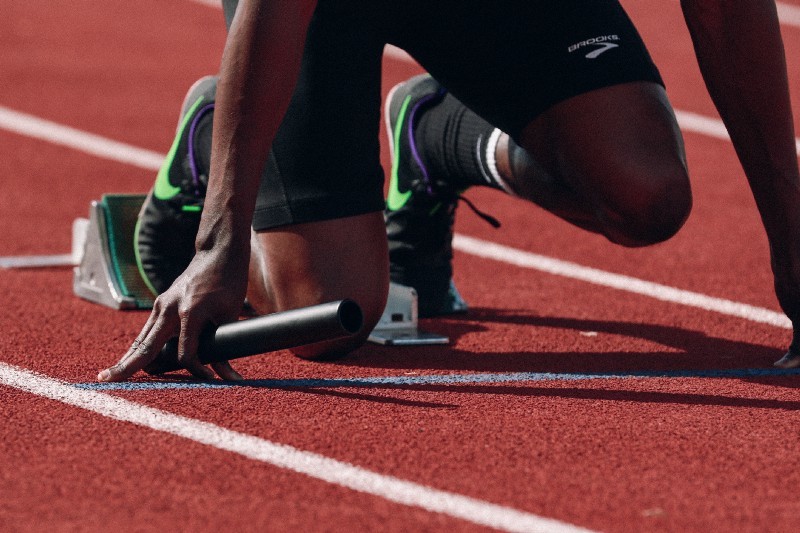Work overload is a distraction. Many people struggle to find the willpower and energy to focus on what’s really important.
Starting today, reclaim your ability to focus, be mindful of what you are doing, and you will create meaningful accomplishments every week. The more focused you are, the higher the quality of work you’ll do, and the more you’ll get done.
Don’t forget the human element of work.
Your energy reservoir diminishes as the day wears on, which is why it’s so difficult to get to the hardest work late in the day. We’re designed to pulse between spending and renewing energy. If you know your peak times, you can do a lot more focused and deep work every day.
I get more important work done during the first 90 minutes of the morning than in the rest of the hours of the day put together. I make the most of sprints in the morning.
Working in sprints with regular breaks leads to maximum productivity. After every sprint comes the rest.
Use the 90 minutes cycle to your advantage
The human body operates on cycles called “ultradian rhythms.” According to research, during each of these cycles, there is a peak when we are most energized and a period when we are exhausted. You are most active in the morning.
Your brain can only focus for 90 to 120 minutes at a time. Afterwards, a 20–30 minute break is required for you to get the renewal to achieve high performance for your next task again, according to research.
During a productive sprint, you focus only on one task at a time and avoid distractions. Each sprint has a specific goal, and the end of the sprint signals a break to relax and set up for the next sprint.
In a post on Zapier, Stephen Altrogge says:
“With the 90-minute focus technique, you take full advantage of the energy peaks and troughs that occur throughout your day: Work 90 minutes and then rest for 20–30 minutes.
Working in 90-minute bursts allows you to correlate your maximum energy levels with your task list, which then gives your productivity a major boost. You’re working with your body instead of against it.
Tony Schwartz, wrote his book, “The Way We’re Working Isn’t Working: The Four Forgotten Needs That Energize Great Performance” in under six months by carving his workday into a trio of 90-minute chunks. He wrote no more than four and a half hours a day, and finished the book in less than 6 months.
Schwartz explains the 90 minutes cycle:
More than 50 years ago, the pioneering sleep researcher Nathan Kleitman discovered something he named the “basic rest-activity cycle” — the 90 minute periods at night during which we move progressively through five stages of sleep, from light to deep, and then out again.
Although it’s much less well known, Kleitman also observed that our bodies operate by the same 90 minute rhythm during the day.
When we’re awake, the movement is from higher to lower alertness. Other researchers have called this our “ultradian rhythm.”
In his book, Schwartz writes:
“While working on The Last Supper, Leonardo da Vinci regularly took off from painting for several hours at a time and seemed to be daydreaming aimlessly. Urged by his patron, the prior of Santa Maria delle Grazie, to work more continuously, da Vinci is reported to have replied, immodestly but accurately, ‘The greatest geniuses accomplish more when they work less.”
In his renowned 1993 study of young violinists, performance researcher Anders Ericsson found that the best ones all practiced the same way:
- They practiced in the morning
- They practiced for three sessions
- Each sessions was 90 minutes or less
- There was a break between each session
That same pattern is found in other top performers, Schwartz reports: focus then rest, focus then rest.
Harness “flow”
When you push the limits of your ability and give yourself a goal, you’re apt to enter into what positive psychologists call flow.
In positive psychology, flow, also known as the zone, is the mental state of operation in which a person performing an activity is fully immersed in a feeling of energized focus, full involvement, and enjoyment in the process of the activity.
Mihaly Csikszentmihalyi, a psychologist who has studied the relationship between attention and work, has written extensively about Flow. Mihaly enourages us to muster enough energy to do what we know we should do. “We create ourselves by how we use this energy”, he says.
In “Flow: The Psychology of Optimal Experience”, he writes:
“Contrary to what we usually believe, moments like these, the best moments in our lives, are not the passive, receptive, relaxing times — although such experiences can also be enjoyable, if we have worked hard to attain them. The best moments usually occur when a person’s body or mind is stretched to its limits in a voluntary effort to accomplish something difficult and worthwhile.Optimal experience is thus something that we make happen.
For a child, it could be placing with trembling fingers the last blockon a tower she has built, higher than any she has built so far; for a swimmer, it could be trying to beat his own record; for a violinist, mastering an intricate musical passage. For each person there are thousands of opportunities, challenges to expand ourselves.”

Establish a routine once you know your peak times
Starting and maintaining a positive daily routine is an investment and a way to do your best work everyday. It also gives you structure, building forward-moving habits, and creating momentum for the rest of the day. It helps you establish priorities, limit procrastination, keep track of your goals and do your best work when you are most active.
Once you establish a routine, it ceases to be a struggle to get in productivity mode everyday because the habit becomes part of you.
Many people pay little attention to the natural rhythms of their body. But once you know what times in the morning you can work better, use it your advantage and your body can deliver at its peak.
Working in 90-minute bursts allows you to correlate your maximum energy levels with your most important task, which then gives your productivity a major boost.
It’s only when you come to appreciate and accept the ebbs and flows of your body that you can really start to deliver maximum results.
A focused work rule is important for peak performance.
Before you go…
If you enjoyed this post, you will love Postanly Weekly. It’s my FREE weekly digest of the best posts about life, productivity and self improvement. And my best post of the week. Subscribe here. Join 18,500+ readers.
Originally published at medium.com



